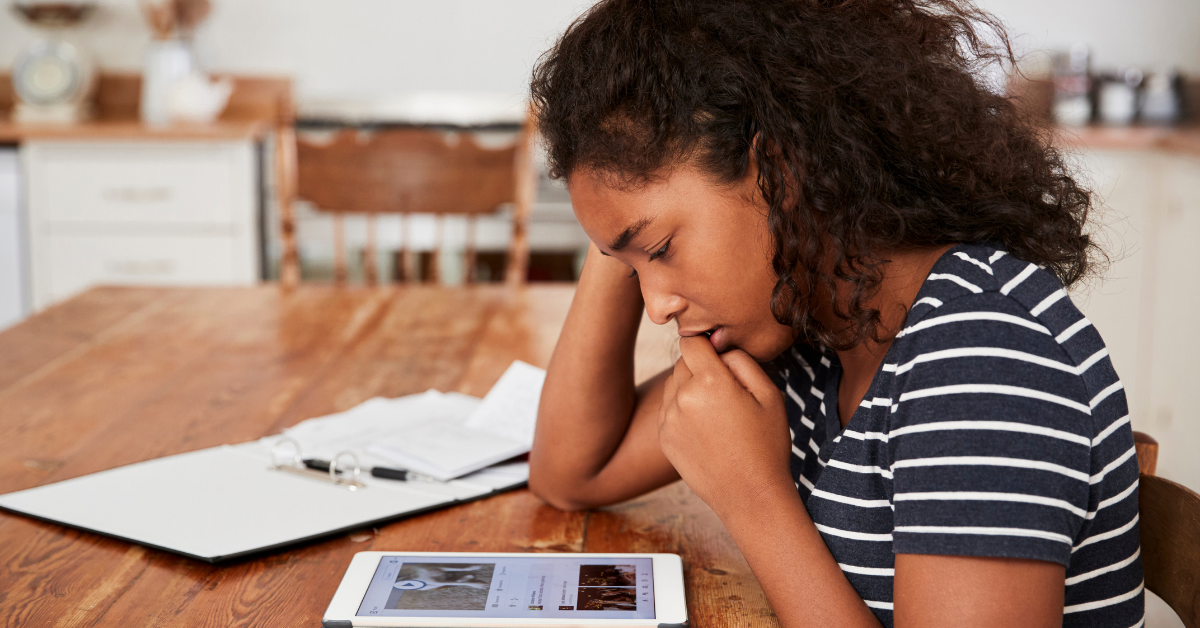If you haven’t experienced much anxiety yourself, it can feel like navigating unchartered (and murky) waters. Your child’s feelings may seem weird, unfounded, or even like they’re making up problems where there are none. We’re here to explain how child anxiety works to help you know how to support an anxious child.
If you know there has to be a way to support anxious children, even if you haven’t cracked it yet, here’s what to do:
1.Validate
Anxiety is always valid. It’s a feeling and hence it’s someone’s real experience – they feel it, so it is real. You don’t need to agree or feel the same or even understand it to be able to validate it. There is always a reason for anxiety, even if it’s not evident. A lot of the time reasons for anxiety are internal – such as triggers from the past, thoughts, and memories. Sometimes it’s something in the environment, or an interaction with someone (including parents, siblings, whānau) – such as feeling judged or rejected by a tone of voice.
It’s tempting to say ‘Don’t worry, there’s nothing to be stressed about it’, BUT having our emotions invalidated actually increases anxiety. The child feels more unsettled because they already feel under threat (hence the anxiety) and on top of that, they feel misunderstood.
A simple phrase such as “I see something/this made you anxious. That’s okay.” and “I will be here for you when you want to chat, or we can just sit together.” can do wonders to help an anxious child relax.
2. Offer safety
Anxiety means the person is feeling unsafe and unsettled. Think: What makes them feel calm and at ease?
This will depend on the situation, but it can be:
- a hug
- a cup of tea
- cuddles with a dog
- a walk
- favourite snack
- offering to give them a few minutes to themselves
- a phone call to someone trusted
This can help lower anxiety to a manageable level. Remember, this can be talking to another person as well. It hurts when our child’s anxiety is caused by our parenting but suggesting calling a family friend or the other parent or caregiver can help de-escalate the nerves.
Remove (temporarily) the source of anxiety if you can. The point is to reduce the input of the perceived threat (pause a stressful conversation, leave the busy loud mall, put homework aside, turn the news off etc.) to be able to calm down.

3. Look for patterns
Help them find patterns in what kinds of situations trigger anxiety.
It’s okay if you can’t find a pattern. A child’s anxiety can be triggered by internal experiences such as thought, memory or sensory trigger (hearing tone of voice that reminds someone of past discomfort etc). Knowing the trigger is not essential to manage anxiety in the short term but it is helpful to know at least some of the triggers to resolve anxiety in the long run. A counsellor can help identify triggers, especially those trickers, internal one)
The point isn’t to avoid triggers (you can’t avoid deadlines, school etc) but to modify those situations to make them feel safer.
4. Get professional help for yourself and the child
Anxiety is normal – it’s one of our emotions and it’s just as welcome as happiness or anger. It’s okay to feel anxious following an argument or before a test or presentation – something that’s out of our comfort zone.
In fact, it’s always okay to feel anxious but if you or your child experiences anxiety in situations that don’t warrant it, it’s time to seek professional help. It can be a sign of unresolved trauma or difficult experiences (what’s difficult to one person is completely individual and not something to judge). Life comes with enough challenges; your whānau don’t need to carry anxiety on your shoulders.
We offer affordable counselling too – in person in Wellington and on Zoom from anywhere in Aotearoa. Sometimes a few sessions are enough!

5… Call us.
For immediate support – call 0800 568 856! Being the only parenting helpline in New Zealand, we are here exactly for situations like yours!
You can access professional support literally from your couch, your car (hands-free only please!) or your walk with the dog.
All you need is a private space away from the ears of your tamariki.
Call us now or find out more here.




